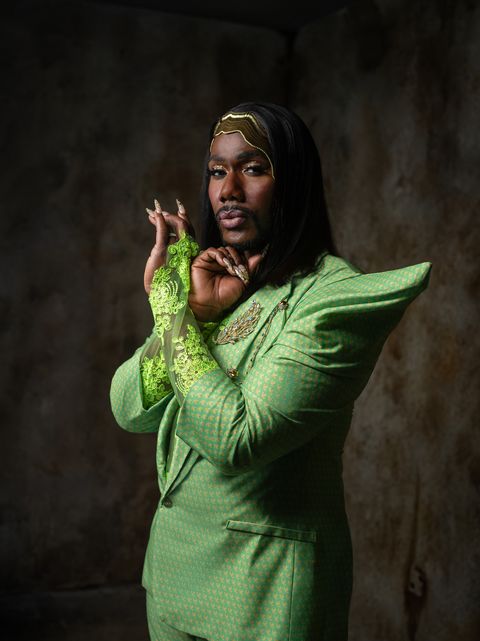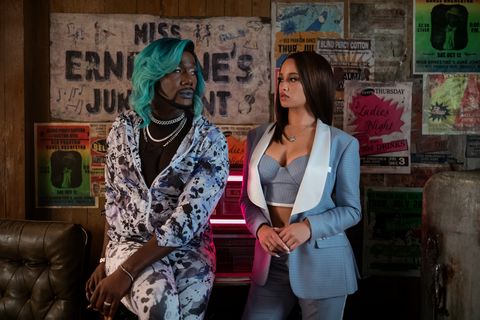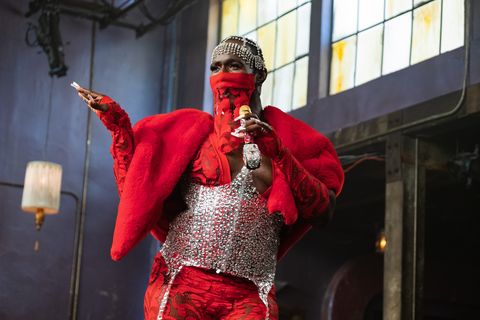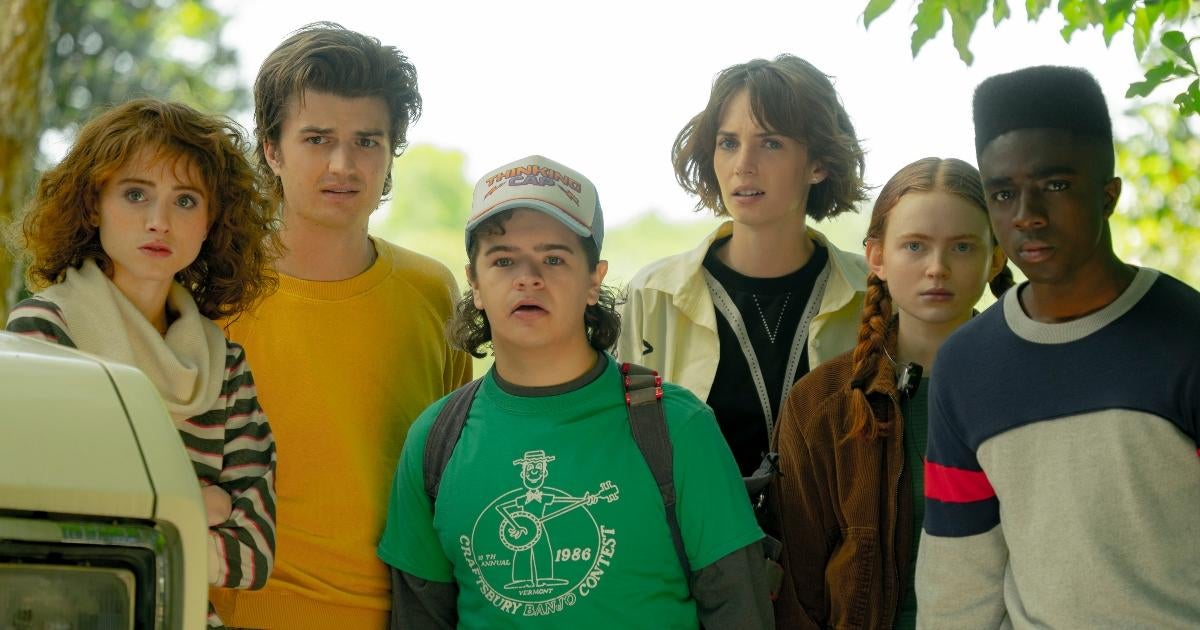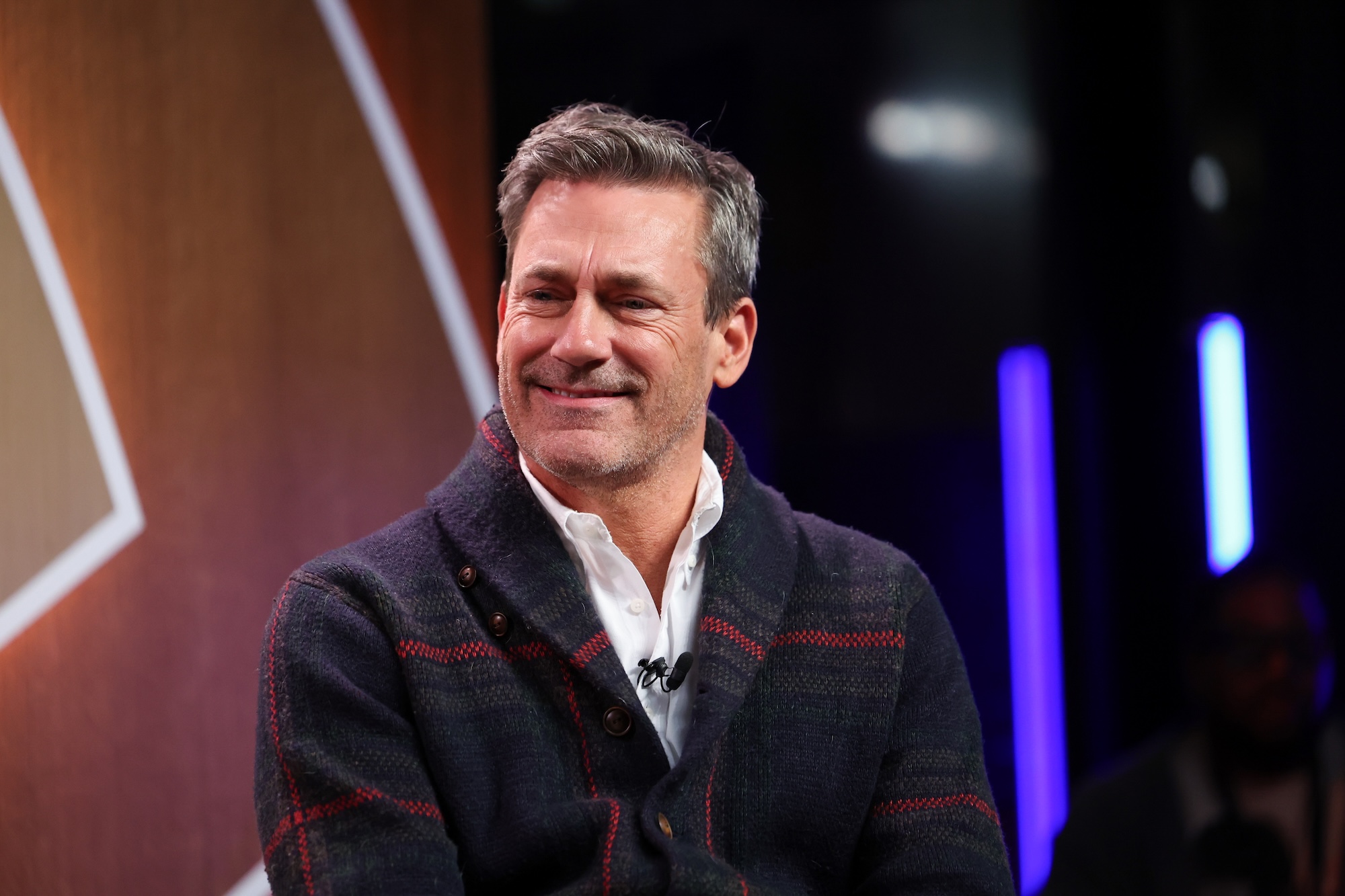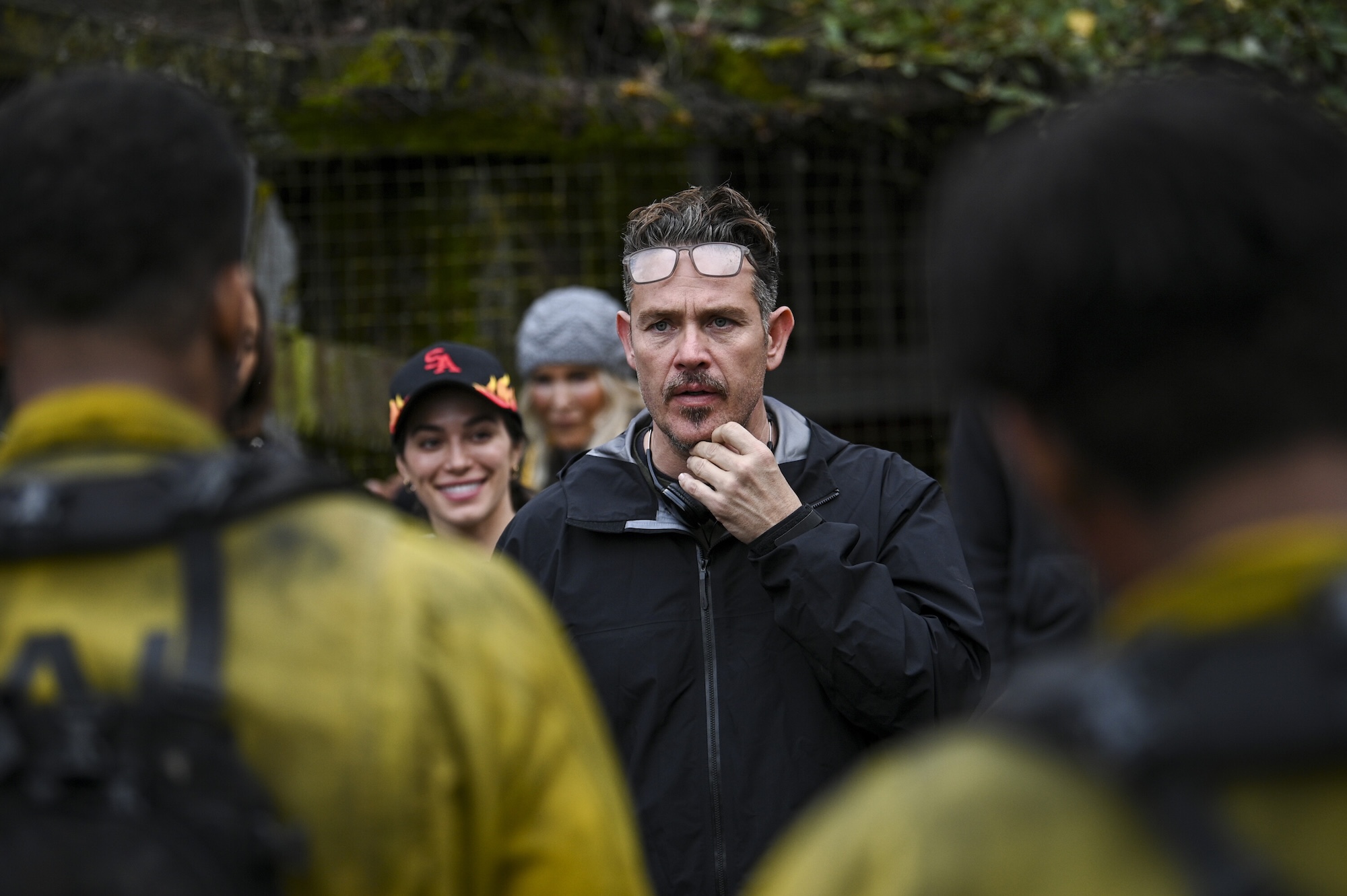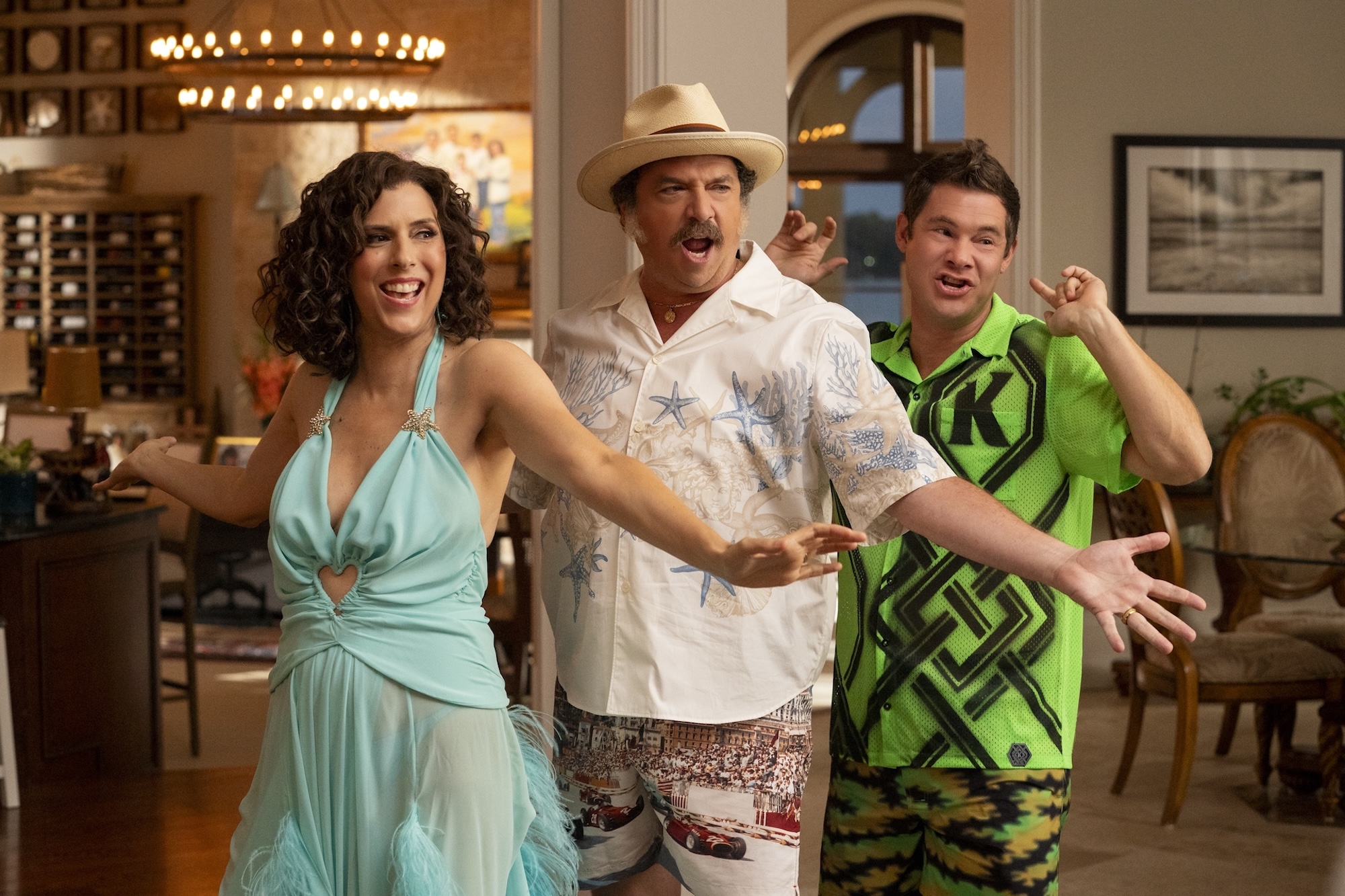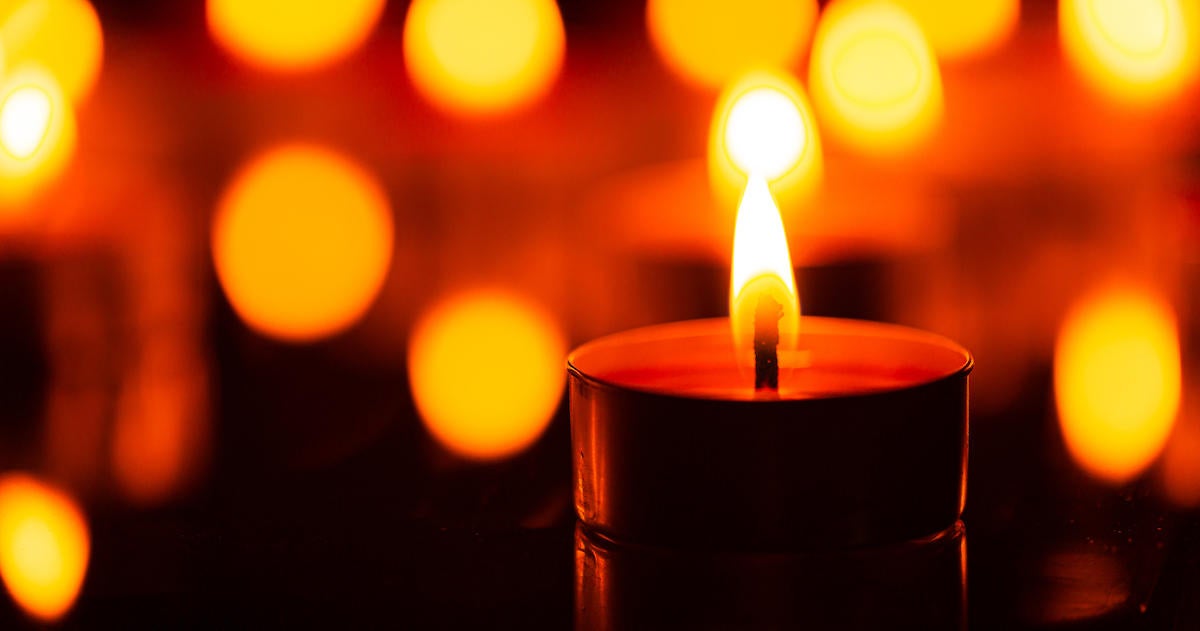P-Valley’s Nicco Annan on Uncle Clifford’s ‘Corona Couture’ and Why It’s Time to ‘Wear Your Crown’
When Katori Hall’s Mississippi stripper saga P-Valley premiered in July 2020, star Nicco Annan immediately claimed viewers’ hearts. As house mother and diva extraordinaire Uncle Clifford—who identifies as non-binary and uses she/her pronouns—Annan (he/him) channels the soul of the show, empathetic and fierce, as the strip club owner leads the dancers of the Pynk through the physical and emotional trials of the life with the help of her oft-quoted “Uncle Clifford rules.” Rule number one: Let the stage be your stepping stone, not your tombstone.
P-Valley itself is an important mark in the path of improving Hollywood’s lacking representation of several marginalized groups: Black southerners, sex workers, the LGBTQIA+ community, the previously incarcerated population. Speaking to ELLE.com over the phone, Annan points to the complex portrayal of the characters as one of the things he loves about the show. “It truly subverts the expectations of what we think all of these characters or archetypes are. You really get to experience their human experience in their heart. You get to see it on front street.”
In season 2, now airing on Starz, that human experience is amplified as we see the effects the early months of the pandemic have on Chucalissa, the Pynk’s home base. Annan, a Detroit-raised actor, dancer, and choreographer, says that the circumstances allow the show to get more intimate with the characters, as questions of mortality and ambition pile up along the day-to-day demands of survival. “It is very taxing to do as an artist but it’s also so rewarding,” he says. “This is the kind of work and craftsmanship as an artist that you yearn for. I hope that it really feeds people’s hearts and solves some wounds.”
As for his favorite Uncle Clifford rule, Annan’s answer may just tease what’s in store for anyone who gets in the HBIC’s way, including new club owner Autumn and the still-impending plans to build a waterfront casino. “Sometimes people say, oh, she’s so Zen, or she’s so heartfelt and sassy, but I’ll say Uncle Clifford Rule 88: Just because a bitch is good at keeping the peace, does not mean she is not good at waging war.”
Below, Annan speaks with ELLE.com about P-Valley season 2 as a time capsule for the pandemic, the generational history of the Pynk, and Uncle Clifford’s inventive style.
It’s very interesting to see P-Valley go back to the early days of the pandemic and show how the club has to adapt and keep going. What conversations did you have about the different ways that the Pynk pivoted during the early days of the Rona?
One of the things that actually was very interesting is that so many small businesses had to pivot how they were addressing their customer base in the pandemic. That was a conversation that I had with Katori [Hall] at some point, and she was like, “Get out of my head, you’re reading my mind.” We had a meeting of the minds. For my own research, I knew that we had a season 2, but we were held and slowed down due to COVID, and couldn’t start as soon as we wanted to. I was hearing and reading the news about different clubs and how they were staying afloat. Now, a traditional nightclub was different even from a strip club, which is based on gathering and intimacy.
Throwing that wrench in the writer’s room was actually something that allowed us to get into much more truth. It helped to provide a closeness and an intimacy with the characters this season that take you deeper into their lives and their story. I feel like the pandemic has caused all of us to be in question, at some point in time of like, is this going to break me? Whether it’s the pandemic or whether it’s a family member that has gotten ill, the loss around you, or the restrictions that you have imposed on your life, a lifestyle. I have so many friends that have lost loved ones and they couldn’t grieve them in the way that they normally had been. So there were just so many different aspects to the pandemic when we talked about just business and ownership. So it just seemed apropos that we tapped on all those things in season 2.
It kind of takes P-Valley’s story of survival in life and just ratchets it to a new level.
You got it. That’s a part of [the show’s] intention from its inception, because in the strip club, the pole is essentially a metaphor for life. Katori always says sometimes rising feels like falling, and falling feels like rising. When you think that you’re going down, that’s when you’re the most free, and you’re flying. You could fail or you could fly.
Speaking of ownership, even from the season 1 finale, I was anticipating how Uncle Clifford and Autumn are gonna run the Pynk together. We’ve seen Autumn be manipulative and scrappy, but Uncle Clifford is an OG, who’s been taught by an OG, her grandmother played by Ms. Loretta DeVine. As you thought about building the character this season, how did it feel to have this upstart come in and think that she knew better in running the club?
Autumn and Uncle Clifford have this definite cantankerous relationship, but I think that Uncle Clifford approaches the business from a perspective of family, of a safe haven. After you’re caring for the people, there’s the matter of the money and “how do we make this work?” That’s where a lot of the rules come from. A lot of them are rooted in character building. If you wanna do this kind of work, these are things that will keep you safe. These are things that bring integrity to you. I think Autumn comes from not having a family like that. She is a drifter in her past, and you find out more about her. She’s coming from a definite financial standpoint. She was a chief financial accountant at the firm, which we found out at the end of season one when she was in the Paradise Room. Her approach to the business is definitely more so from the monetary aspect and not necessarily the humanitarian. That’s where they always bump heads because Uncle Clifford is like, it’s always about money for you, but what about the people? That’s what I think she’s about.
I think also because the Pynk has been such an [important] place. You will discover even more this season that the roots of this building—it literally is not just a building. Prior to the Pynk, in its initial inception, it was a cotton mill. That’s why it looks so industrial, and [has] high windows, and it’s near the cotton fields over where Corbin [a patron of the club and son of a cotton heir] is. That was Uncle Clifford’s great-grandfather who owned the cotton mill, and then it passed on down and went to Ernestine, Uncle Clifford’s grandmother. In her iteration, it was a juke joint. And then it was passed down and skipped a generation, Uncle Clifford’s mom or father, and went to Uncle Clifford. You will find out why and more about that in the season, about that skipped generation component. But when Uncle Clifford took it over, she made it a shake junt. Knowing the history behind it, that’s also a part of why Uncle Clifford loves the club so much. It is not literally just a building. It’s a place that literally has been built on the backs of many.
I have to talk about the costumes because Uncle Clifford is still dressing up during the Rona. Some of those masks are lovely. What were some of the conversations you had with the costume team this season?
With costumes, it’s such a fun building process. It starts on the page, ironically. It’s not just arbitrary fashions that’s put together. For example, episode one of season 2, you see Uncle Clifford in this big cape, and that cape is a Crown Royal [whiskey] cape. For me, when we were creating that, they were like, a Crown Royal cape? But I was like, yeah, out of the bags of Crown Royals, cause she’s been drinking. She’s been in the pandemic, the alcoholism is up. What else are you gonna do? Her boo is not there. She’s broken up. So you have all of that quarantine, pandemic pining, that’s going on, and wanting touch—not even just in an intimate sexual way, but just like someone to talk to. You’re just in with your grandmother. It can be a lot. So, you take 153 bottles of Crown Royal and you make a cape out of all the bags that come with it, just repurpose it.
Working with Tiffany [Hasbourne] and Alita [Bailey], as our two costume designers this season, it was really great to be able to push the elements, and the designs. Even in episode two, the pictures are circulating [of the look] in the red lace. With that outfit it’s like, you’re getting dressed up like this for an audition? Yes is the absolute answer, because in the pandemic it was a real thing that you didn’t have anywhere to go. So when you had an opportunity or a reason to get dressed, you got dressed. Uncle Clifford goes all the way out, as always. She’s sometimes doing the most, and sometimes these masks aren’t necessarily COVID safe, but they’re fashion. It’s gonna do something, and we’re gonna keep her safe and keep Grandmama Ernestine safe as well, while still being in your Corona couture.
In episode two, there’s a big celebration for Uncle Clifford. So much about P-Valley is about the working, the grind, the surviving… It was just so lovely to have a scene where Clifford was just being joyfully celebrated. What was it like filming that scene?
That scene was really beautiful to shoot, and I actually choreographed that scene. It was one of the opportunities that I had to choreograph on the show. The marginalized people that this show represents—this season, every one of them, the real people that exist in the world—are able to be celebrated. It was wonderful to have other artists that represent the LGBTQ community as her friends. It’s wonderful to see real pole dancers that have shifted the culture like Gigi Maguire and Jessica Dime, to have them really be a part of the show. There are other spoilers that I don’t wanna say. Other people come into the show that represent these marginalized characters. It was really intentional that we, as a show, gave people their flowers now. That’s just reflected in the characters and in the stories. Yes, it’s a struggle, but it was really a journey to—in the P-Valley language, we would say “wear your crown.” You need to wear your crown now. ‘Cause tomorrow isn’t promised.
This interview was edited and condensed for clarity.
This content is created and maintained by a third party, and imported onto this page to help users provide their email addresses. You may be able to find more information about this and similar content at piano.io

